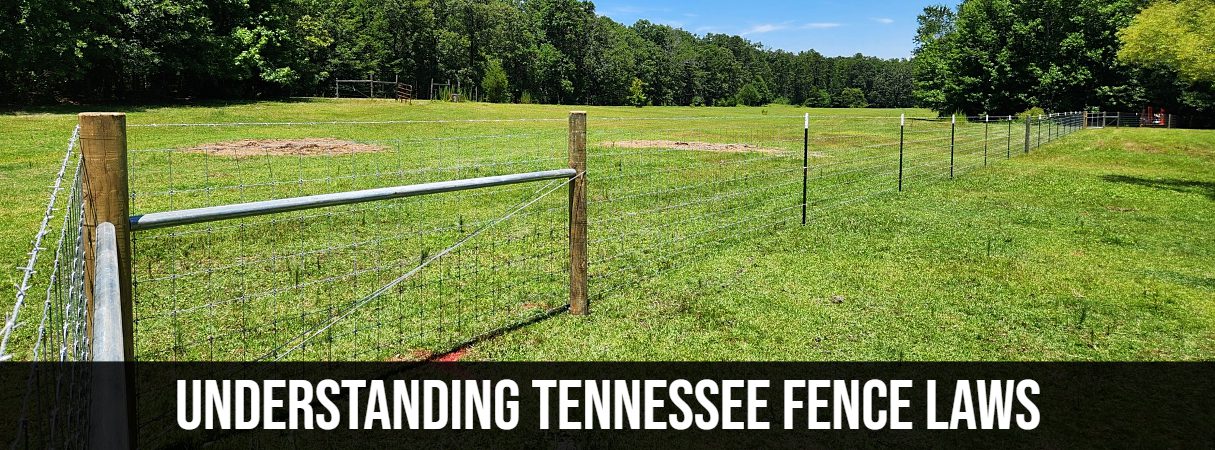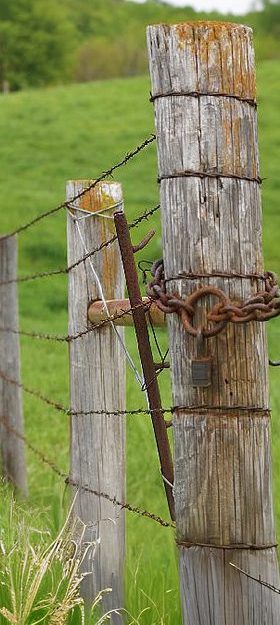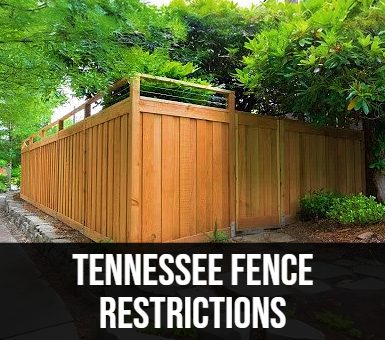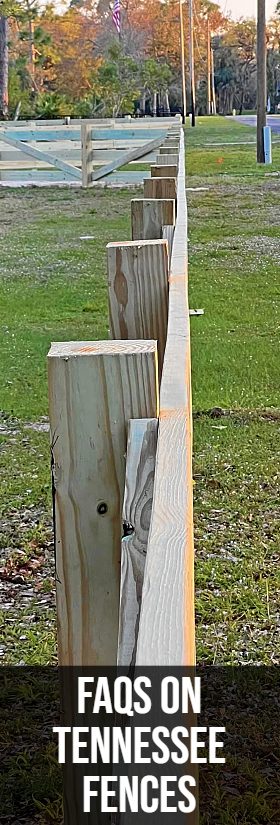
Overview of Tennessee Fence Laws
Welcome to the wild world of Tennessee fence laws, where your backyard boundaries might just be the next hot topic at the neighborhood BBQ. Fencing might not be the first thing on your mind when you buy a piece of Tennessee land, but trust us—it’s more important than you think. Whether you’re trying to keep the nosy neighbors out, the dogs in, or simply want to enjoy your privacy, understanding the legal ins and outs of fence laws in Tennessee can save you a lot of headaches down the road. After all, nobody wants to find out after the fact that their beautiful new fence is, well, illegal.
Now, before you start dreaming about that white picket fence or the tall privacy wall that will finally give you some peace and quiet, it’s crucial to know what you’re legally allowed to build. Tennessee has specific regulations that dictate everything from where your fence can be placed to how tall it can stand. And let’s not forget the all-important question: who’s going to foot the bill when the thing needs a little TLC? Whether you’re building, maintaining, or mediating a fence dispute, understanding Tennessee’s fence laws is your first step to ensuring that your fence doesn’t just stand tall—it stands legally.

Understanding Tennessee Fence Laws
Introduction to Fence Laws in Tennessee
Tennessee doesn’t have a one-size-fits-all law for fences. Instead, the state leaves much of the regulation to local governments. However, there are still a few state laws you should be aware of. For example, trespassing laws are in place to prevent your neighbor from getting a little too cozy with your backyard BBQs, and property damage laws can come into play if a rogue tree branch—or fence panel—decides to wreak havoc on someone else’s property. Before you go on too much further, realize it might be worth understanding How to Sell Tennessee Land without a Realtor.
Key Terminology Explained
Now, let’s get down to brass tacks—or in this case, fence posts. Here are a few terms you should know before diving into the details:
- Boundary Fence: A fence that sits on the dividing line between two properties. Think of it as the Switzerland of fences—neutral ground.
- Partition Fence: This is a fence that separates two properties, and usually, both property owners are on the hook for its upkeep.
- Adverse Possession: If your neighbor has been using a piece of your land openly and without permission for a certain period, they might have a claim to it. Yes, it’s a thing, and it’s called “adverse possession.” Fun times, right?
Understanding Your Rights & Responsibilities
Who Owns the Fence?
Who owns that fence? It’s a common question with an answer that can get a little sticky. In Tennessee, if the fence is right on the property line, it’s typically considered a “boundary fence,” and both property owners have a stake in it. This means you’re both responsible for maintenance and repairs. If the fence is entirely on your property, then it’s all yours—congratulations! But with great power comes great responsibility: You get to maintain it, fix it, and explain to your neighbor why it’s not their new hat rack.
Fence Maintenance Obligations
You might be wondering, “Do I really have to take care of this thing?” The short answer is yes. If you share a boundary fence, both you and your neighbor are on the hook for keeping it in good shape. That means no letting it fall into disrepair or become an eyesore. Tennessee law expects you to maintain your side of the fence like you would a fine Southern garden—trimmed, tidy, and free of anything that might invite gossip.
Disputes Between Neighbors: How to Handle Them
Fences make good neighbors—until they don’t. If you and your neighbor find yourselves in a fencing feud, Tennessee law has your back. Start by trying to hash things out over a cup of coffee (or something stronger, depending on the situation). If that doesn’t work, you might need to bring in a mediator or, in extreme cases, take the matter to court. But let’s hope it doesn’t come to that—after all, nobody wants to be the Hatfield or McCoy of their cul-de-sac.
Specific Regulations for Tennessee Counties & Cities
Shelby County Fence Ordinances
In Shelby County, there are specific rules about where you can place your fence, how tall it can be, and what it should look like. For example, fences in the front yard usually need to be shorter than those in the backyard, and there might be restrictions on materials, especially in historic districts. Always check with local regulations before you start building, unless you want a visit from the local zoning board.
Wilson County Zoning & Fence Laws
Wilson County has its own set of rules, particularly when it comes to zoning. If you’re planning on building a fence, you’ll need to make sure it complies with local zoning laws, which could affect things like height and placement. For instance, a towering fence might be great for privacy, but it might not fly in your area, especially if it blocks a scenic view.
City-Specific Rules: Jackson, TN
In Jackson, TN, the city has laid down some ground rules for fencing that vary depending on whether you’re in a residential, commercial, or industrial zone. For example, residential fences might be limited to six feet in height, while commercial properties could have different restrictions. Make sure you’re not breaking any rules—or you might end up with more than just a few raised eyebrows from your neighbors.
Building & Permitting Requirements
Do You Need a Permit for Your Fence?
Before you start building that fence, check if you need a permit. In many parts of Tennessee, especially in more urban or regulated areas, a permit might be required for fences over a certain height or for those that are intended to serve as a barrier. Skipping this step could result in fines or, worse, having to tear down your new masterpiece.
Applying for a Fence Permit in Tennessee
If you do need a permit, the process is usually straightforward. You’ll fill out an application, provide details about your planned fence (height, materials, location), and pay a fee. Then, you wait for approval, which might involve an inspection. It’s not the most fun part of fence-building, but it’s better than the alternative—having to redo the whole thing because you missed a step.

Consequences of Non-Compliance of Tennessee Fence Laws
What Happens if You Violate Fence Laws?
Nobody likes to think about it, but if you violate Tennessee’s fence laws, you could face some consequences. These might range from fines to being ordered to remove or modify your fence. It’s always better to check the rules first than to pay the price later—literally.
How to Rectify a Fence Law Violation
If you find yourself on the wrong side of the law, don’t panic. Usually, the first step is to correct the issue, whether that means lowering the height of your fence, changing the materials, or moving it to comply with setback requirements. In most cases, you’ll have a chance to fix things before the fines start piling up.
Conclusion: Ensuring Your TN Fence Stands Legal
In the end, a well-placed, well-maintained fence is more than just a boundary marker—it’s a statement. It’s a way to enhance your property, keep the peace with neighbors, and maybe even add a little charm to your corner of Tennessee. Whether you’re keeping in the cows, keeping out the critters, or simply enjoying the privacy of your own backyard, your fence should stand as a testament to both your good taste and your understanding of the law.
In Tennessee you have to remember that a fence serves more than property boundaries. It’s about keeping peace with your neighbors too! If you stick to the state rules and neighborhood laws regarding fences you can sidestep arguments. Avoid costly fines or legal troubles down the road! A compliant fence is a fence; it does its duty without stirring up any trouble, for you or your neighbors.
As you go through the process of planning for your fence. Whether its constructing it from scratch or simply maintaining it. Remember to take these regulations into consideration. Your hard work and attention to detail will definitely pay off in the term by ensuring that your fence not only serves its purpose but also abides, by the legal requirements in Tennessee. Who knows what could happen next?
With a thought out design and a touch of creativity thrown in the mix. Your fence may just end up being the talk of the town! All there’s something special and neighborly about having a quality fence that fosters good relationships with those living nearby and makes your property feel truly homely.” Wishing you success, in your construction project. May your fence be sturdy and meet all the necessary requirements.
Frequently Asked Questions (FAQs)

1. Who Owns the Fence on the Property Line in Tennessee?
In Tennessee, a fence built directly on the property line between two properties is typically considered to be jointly owned by both neighbors. This means that both parties are responsible for its maintenance and repair. If one neighbor builds a fence on the property line, the other neighbor may be required to contribute to the costs, even if they didn’t request the fence or use it themselves.
2. Can My Neighbor Build a Fence on the Property Line?
Yes, your neighbor can build a fence right up to the property line. However, if you begin using this fence as a partition fence—meaning it serves as a boundary for both properties—you may be obligated to contribute to its maintenance and repair. The law also requires that each party maintains their part of the fence in good condition to prevent disputes.
3. How Do I Determine Where My Property Boundary Is?
Property boundaries are typically indicated on the deed of your property. You can also visit your local county assessor’s office or access online public maps to confirm these boundaries. If there’s any dispute about the boundary location, hiring a professional land surveyor is a wise step to get an accurate and legally recognized boundary determination.
4. What Is a Spite Fence, and Is It Legal in Tennessee?
A “spite fence” is a fence that is erected with the intent to annoy or harm a neighboring property owner. While Tennessee law doesn’t specifically mention spite fences, courts have ruled that any fence built without a useful purpose and primarily to irritate a neighbor can be deemed illegal. Property owners can take such cases to court to have the spite fence removed and potentially recover damages.
5. Do I Need a Permit to Build a Fence in Tennessee?
Whether you need a permit to build a fence depends on your local regulations. In many parts of Tennessee, especially in urban areas, a permit is required for fences above a certain height or for those that serve as barriers. It’s always a good idea to check with your local zoning board or building department before starting construction to avoid potential fines or the need to alter your fence later.